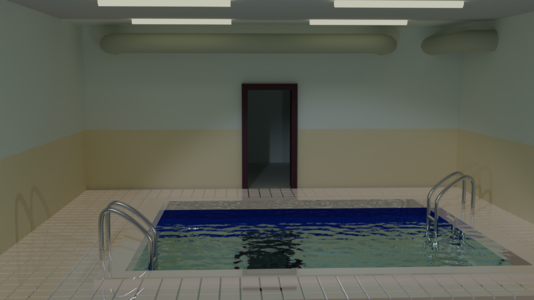User:Senka/a bas nije da nas nikad nije bilo: Difference between revisions
mNo edit summary |
|||
| (4 intermediate revisions by the same user not shown) | |||
| Line 9: | Line 9: | ||
==Research questions== | ==Research questions== | ||
* What | * What would be a queer Balkan history, what has been forcefully forgotten along the way? | ||
* How could one dig up what | * Which forgotten queer Balkan histories would help us imagine the future differently? | ||
* How could one dig up what has already been there, queer and hiding in plain sight, to counter the narrative of queerness being something that is inherently Western? | |||
* | * More broadly how can one counter homo nationalist queer narratives that posit the west as a the source of queerness and other country as a source of backwardness? | ||
* What do a local queer culture and a queer vocabulary look like when they are not forcefully copy pasted from western queer pop culture? | |||
* How has the conception of national identities influenced the attitude towards queer identities? | |||
==3D explorations== | ==3D explorations== | ||
| Line 35: | Line 37: | ||
==Printers== | ==Printers== | ||
==Games== | |||
With Alessia, Thijs, Victor, Lorenzo and Bernadette we have a little group for meeting up, talking about, sharing and playing games. This is the pad > https://pad.xpub.nl/p/games | |||
===Text Adventures, Choose your own adventures, Non-linear storymaking=== | |||
Special page for this > [https://pzwiki.wdka.nl/mediadesign/Text_Adventures,_Choose_your_own_adventures,_Non-linear_storymaking] | |||
==Godot== | ==Godot== | ||
Alessia and I made a page dedicated to learning Godot and sharing what we've found> [https://pzwiki.wdka.nl/mediadesign/Working_with_Godot] | |||
==The history== | ==The history== | ||
| Line 60: | Line 69: | ||
* liminality on deciding on a region | * liminality on deciding on a region | ||
* | * | ||
===On Untranslatability=== | |||
I think in (some) Slavic languages you just cannot write in the academic style or fashion of canonical queer theorists. Judith Butler writing gender is performative is something I cannot put in words in Serbian without it sounding like it was google translated (at the time of writing this, google translated is used as a synonym to mean poorly) but my friend Nat, to the question of how to address them since we do not have adequate pronouns for them in Serbo-Croatian, responds 'Дај шта даш' (literally "Give what you give", meaning give what you can afford to give) conveys a similar energy. <br> | |||
I'm really thinking along this idea that the guy from Slavs and Tatars voiced in one of their lectures (it might be tranliterated tease but I have to doable check). He explained that the reason Russia does not have notable philosophers is because the fiction writers are philosophers, they occupy many roles and embed them in fiction. And I think this is more broadly true of Slavic languages imho. | |||
Latest revision as of 21:54, 19 October 2024
квир истраживања све овде бацамо ајде идемо
Meetings with Ana Milić
- her reseach on post-yugoslav queer and migrant oral histories
- the things we've discussed in the interview
- resources she shared with me:
___
Research questions
- What would be a queer Balkan history, what has been forcefully forgotten along the way?
- Which forgotten queer Balkan histories would help us imagine the future differently?
- How could one dig up what has already been there, queer and hiding in plain sight, to counter the narrative of queerness being something that is inherently Western?
- More broadly how can one counter homo nationalist queer narratives that posit the west as a the source of queerness and other country as a source of backwardness?
- What do a local queer culture and a queer vocabulary look like when they are not forcefully copy pasted from western queer pop culture?
- How has the conception of national identities influenced the attitude towards queer identities?
3D explorations
Liminality
Previous readings that posit the Balkans as a place that could not self identify, but is liminal because it was identified by larger global forces.
Pool
I wanted to get a bit better at making scenes (lighting, textures, etc) so I modeled and rendered a pool.
I followed this tutorial by intranet whom I love >>>[1]
Airport
Pioner dool
_____
_____
Printers
Games
With Alessia, Thijs, Victor, Lorenzo and Bernadette we have a little group for meeting up, talking about, sharing and playing games. This is the pad > https://pad.xpub.nl/p/games
Text Adventures, Choose your own adventures, Non-linear storymaking
Special page for this > [2]
Godot
Alessia and I made a page dedicated to learning Godot and sharing what we've found> [3]
The history
So far I've looked into:
- Pagan / pre-christian times
- Ottoman empire times
- Yugoslavia (from kingdom to socialist republic to dispersal)
- Post-yugo time
Thought
So far I've found quite a bit which seems to be a layer upon layer of blame. During the ottoman empire, queer practices were seen as a violent ottoman legacy, that was enforced through rape and abduction. In the beginning stages of communist uprising, queerness was perceived as a sign of the bad influence of the bourgeoisie. As far as the pre-christian era, there is little to nothing to be found on this topic. Generally, records are scarce, and the Balkans was never a region preoccupied with record-keeping (unlike colonial powers).
So what now, when I've combed through, and mostly found violence and blame of larger forces for the existence of people who are everywhere around the world.
There is also something to be said about the fact that queer as an identity came way later, in the past it was often seen as a thing that happens, rather than a thing that you are, an identity..
Different ways to interact with a screen
Ideas
Презентација у дрегу?
Tangents
- liminality on deciding on a region
On Untranslatability
I think in (some) Slavic languages you just cannot write in the academic style or fashion of canonical queer theorists. Judith Butler writing gender is performative is something I cannot put in words in Serbian without it sounding like it was google translated (at the time of writing this, google translated is used as a synonym to mean poorly) but my friend Nat, to the question of how to address them since we do not have adequate pronouns for them in Serbo-Croatian, responds 'Дај шта даш' (literally "Give what you give", meaning give what you can afford to give) conveys a similar energy.
I'm really thinking along this idea that the guy from Slavs and Tatars voiced in one of their lectures (it might be tranliterated tease but I have to doable check). He explained that the reason Russia does not have notable philosophers is because the fiction writers are philosophers, they occupy many roles and embed them in fiction. And I think this is more broadly true of Slavic languages imho.





